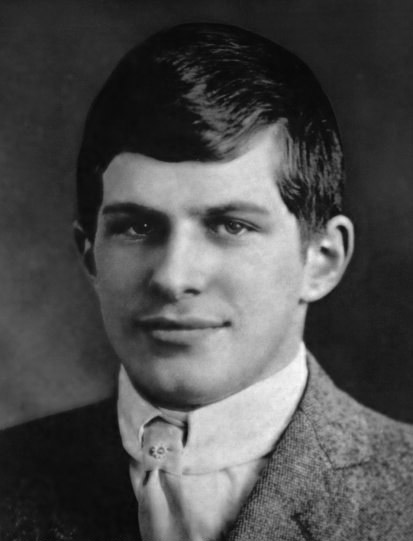|
|
| (42 intermediate revisions by 2 users not shown) |
| Line 1: |
Line 1: |
| '''I know that there's already an article, I'm just making a MASSIVE revamp''' | | '''Note from Paul''': I ask that you don't edit this because if you do, when I publish the finished article, the history won't account for your edit. It will just say that I created it. |
| | |
| | <big><big><big>William James Sidis (Lost works of American child Prodigy; 1905-1944)</big></big></big> |
|
| |
|
| {{InfoboxLost | | {{InfoboxLost |
| |title=<center>Fallout: Brotherhood of Steel 2</center> | | |title=<center>Short Subject</center> |
| |image=BOS 2.jpg | | |image=William James Sidis 1914.jpg |
| |imagecaption=Cover for the design document. | | |imagecaption=Sidis photographed for his Harvard Graduation (1914). |
| |status=<span style="color:red;">'''Lost'''</span> | | |status=<span style="color:orange;">'''Partially Found/Lost'''</span> |
| }} | | }} |
|
| |
|
| '''''Fallout: Brotherhood Of Steel 2''''' was the scheduled sequel to the 2004 Interplay game ''Fallout: Brotherhood Of Steel'', developed and produced by Interplay Entertainment in 2004. The game was canceled when Interplay filed for bankruptcy.
| | William James Sidis was an American child prodigy. His monumentous intellectual abilities, coupled with a seemingly tragic life story, have attracted wide interest from scholars, scientists, and popular commentators. |
| | |
| ==Plot==
| |
| [[File:Texas.jpg|thumb|285px|right|Map of the area progression of the game.]]
| |
| The game, set in and progressing through areas of Texas, follows a war waging between the Brotherhood of Steel and a raider group known as The Cyphers. The Cyphers are recognized as the exact opposite of the Brotherhood of Steel; driving to destroy technology and eradicate the Brotherhood of Steel. The Cyphers have come into possession of a G.E.C.K (Garden of Ethan Creation Kit). Miles Reese, whom discovered the device, intends to use it to destroy human life and create a new world, overrun by vegetation.
| |
|
| |
| | |
| ==Gameplay<ref>[http://fallout.wikia.com/wiki/Fallout:_Brotherhood_of_Steel_2_design_document Page #21 of the design doc]</ref>==
| |
| Like the original title, the player was restricted to only the choice of picking from a range of per-created potential protagonist characters, each having respective restrictions and fields of expertise that would drive the story.
| |
| | |
| | |
| | |
| ==Development==
| |
| A hypothesis by ProgrammingAce of the Game Of The Art forum, whom leaked the design document by Brian Freyermuth, follows the notion that the predecessor was intended as a mere source of funds for the the sequel; this strategic decision was responsible for the original's poorly-received game quality.
| |
|
| |
|
|
| |
|
| Like many games of the franchise, the game's style drew influence from the ''Mad Max'' series and films from the 1950s.<ref>[https://vignette.wikia.nocookie.net/fallout/images/d/d9/FOBOS2_design_document_03.jpg/revision/latest?cb=20100122011344 Page #3 of the design document]</ref>
| | ==Significance== |
| | The significance of Sidis's output is multiple. Commentators[footnote,] on Sidis |
|
| |
|
|
| |
|
| ===Cancellation===
| |
| The game was cancelled due to the undesirable sales of the first game.
| |
|
| |
|
| ==Availability==
| | ――――――――――――――――――――――――――――――――――――――――― |
| The design document for the game was leaked in 2009, constituting almost all of the available information, filled with in-game photographs. Minus page 5, the entirety of the document is available. No gameplay footage has surfaced.
| |
|
| |
|
| ==References==
| | <big>Next</big> |
| {{reflist}}
| | * Early computer programs |
| | ** Alan Turing's Turbochamp |
Note from Paul: I ask that you don't edit this because if you do, when I publish the finished article, the history won't account for your edit. It will just say that I created it.
William James Sidis (Lost works of American child Prodigy; 1905-1944)
Sidis photographed for his Harvard Graduation (1914).
Status: Partially Found/Lost
William James Sidis was an American child prodigy. His monumentous intellectual abilities, coupled with a seemingly tragic life story, have attracted wide interest from scholars, scientists, and popular commentators.
Significance
The significance of Sidis's output is multiple. Commentators[footnote,] on Sidis
―――――――――――――――――――――――――――――――――――――――――
Next
